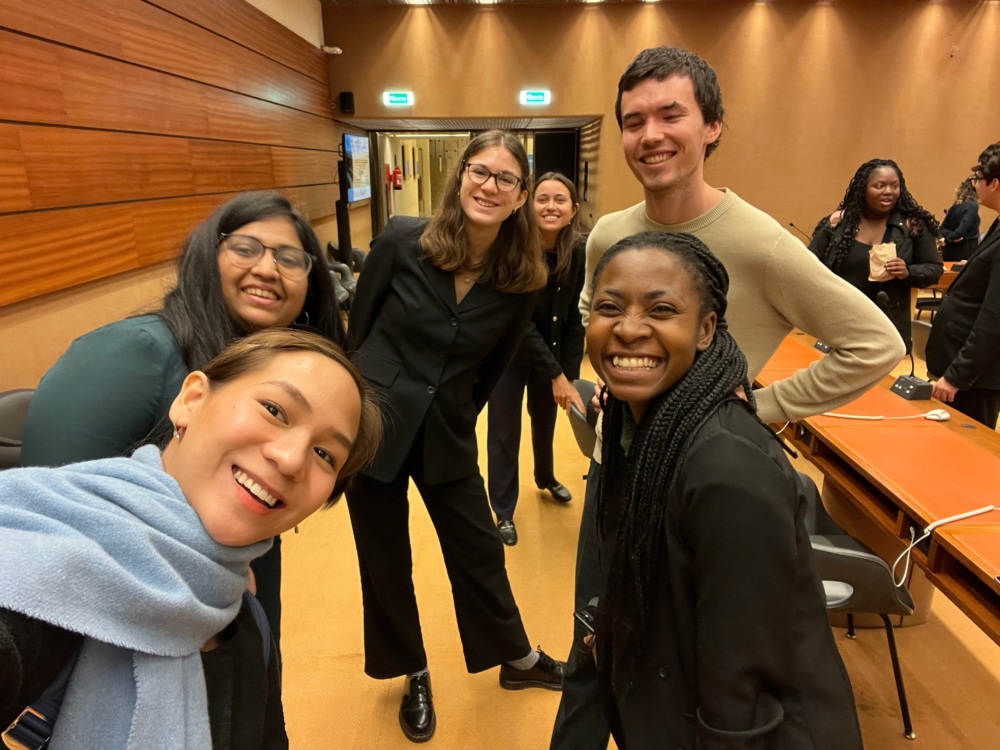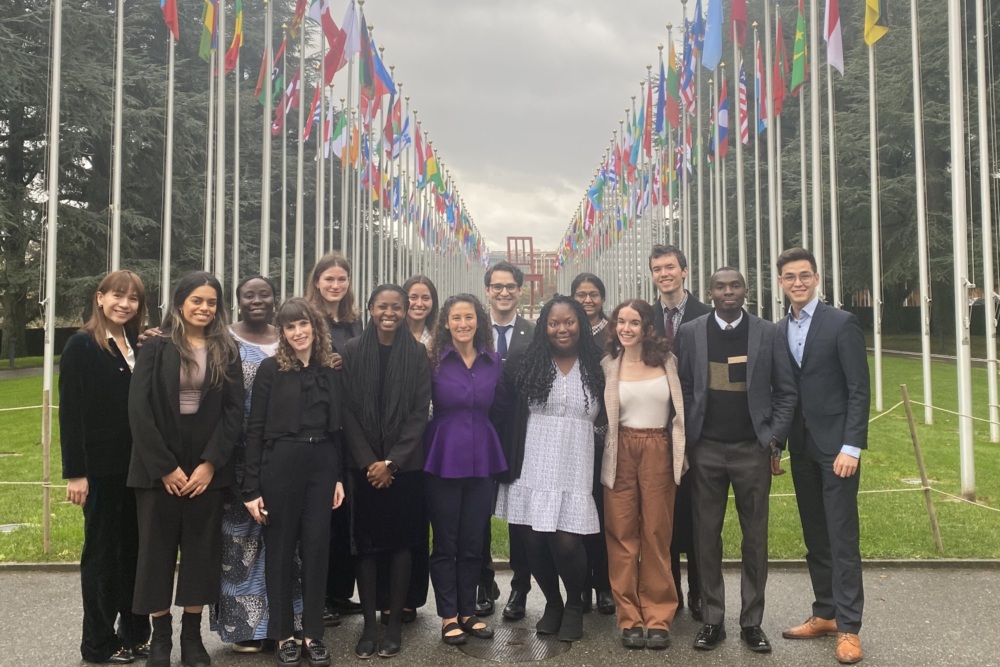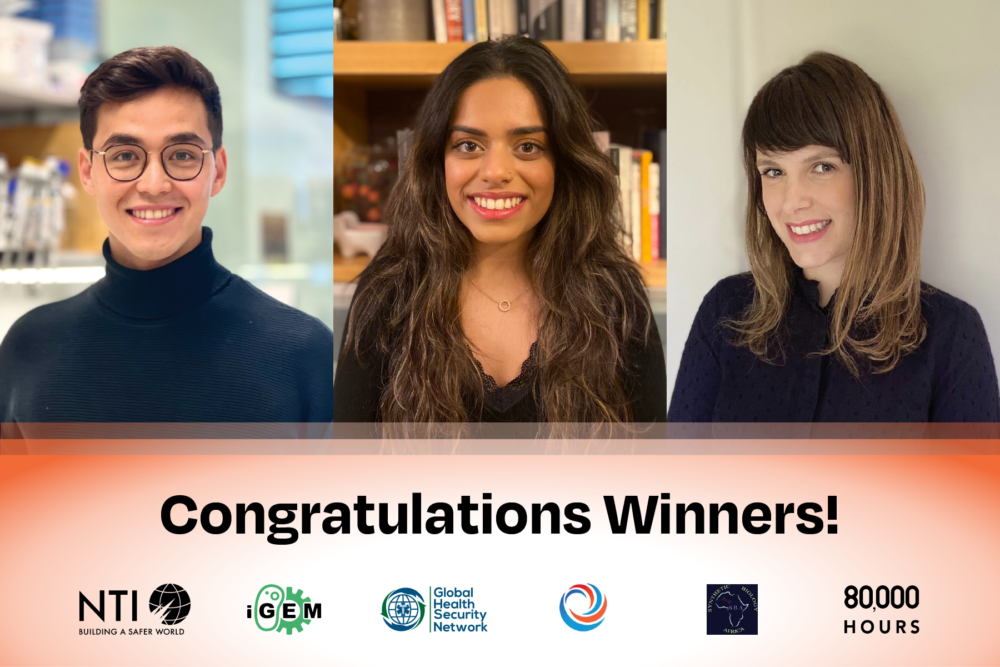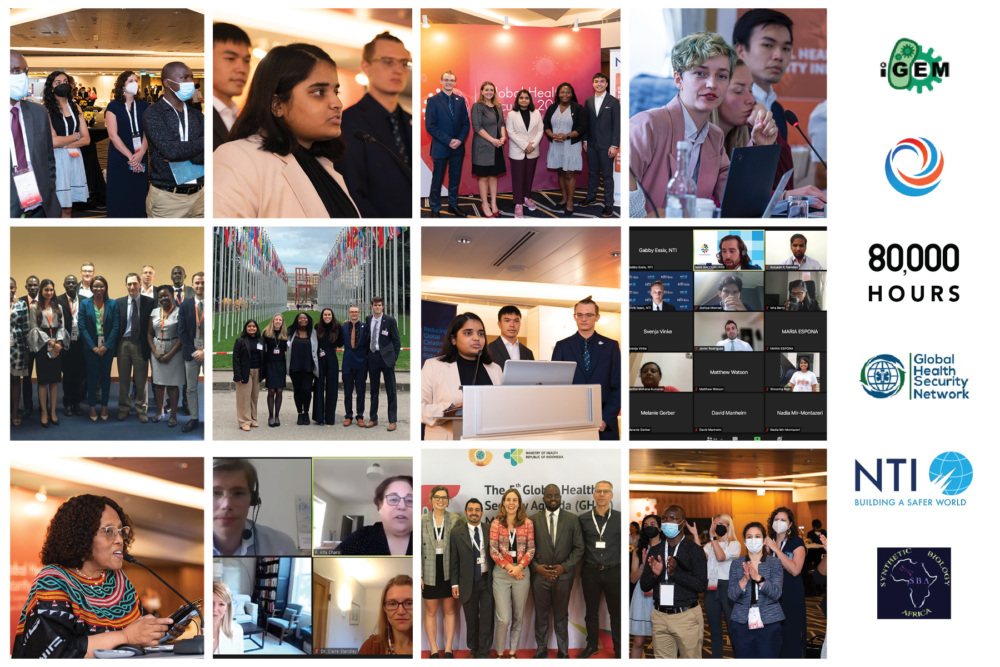
Apply for the 2024 NTI | bio Next Generation Biosecurity Delegation
NTI | bio will bring a 2024 Next Generation Biosecurity Delegation of early-career professionals to the Biological Weapons Convention (BWC) meetings from August 19 – 23.
The Eighth Annual Next Generation for Biosecurity Competition is now open. NTI | bio hosts this competition to provide a platform for the next generation of global leaders in biosecurity to develop original concepts and share them with the wider biosecurity community. This year’s co-sponsors include 80,000 Hours, the Global Health Security Network, the iGEM Foundation, the International Federation of Biosafety Associations, the Next Generation Global Health Security Network, Pandemic Action Network, SynBio Africa, and Women of Color Advancing Peace, Security, and Conflict Transformation.
This year, the competition invites innovative and creative papers focused on how investments in biosecurity can both contribute to a more equitable society and reduce biological risks. The full prompt is provided below.
Winners of the Biosecurity Competition will be awarded the following:
The world is increasingly vulnerable to biological threats. Trends in urbanization, global travel and trade, environmental degradation, and continued state and non-state interest in biological weapons make epidemics and pandemics more likely. Rapid advances in bioscience and biotechnology outpace the ability of national governments and the international community to provide effective oversight, which increases the potential for misuse with catastrophic consequences[i].
The COVID-19 pandemic demonstrated how biological events can lead to tremendous loss of life, severe economic damage, and sociopolitical instability around the globe, deepening pre-existing health disparities. It has also highlighted the impacts of systemic inequities at sub-national, national, and global levels on pandemic preparedness. The burden of risk is not evenly shared, where certain groups (such as women, Indigenous peoples, and certain communities within low- and middle-income countries) are more adversely affected by outbreaks regardless of the source of the event. These groups may experience poorer health outcomes, greater economic losses, greater workplace burdens, and greater security risks in times of conflict.
Successful biosecurity policies and practices can minimize the risk of pandemics and other catastrophic biological events that disproportionately impact vulnerable populations, with the goal of eliminating them entirely. Recognizing the interplay between inequities and security is crucial for a comprehensive and effective approach to reducing biological risks. Going forward, governments should consider how the concept of equity can be most effectively integrated into biosecurity policies and practices.
Given this background, applicants should tailor their submission to address the following question:
How does equitable biosecurity investment effectively reduce biological risks?
For the purposes of this competition, please use the following definition for biosecurity:
The submission deadline is SUNDAY, JUNE 2, 2024, at 11:59PM ET. Teams should submit their papers here.
Submissions are evaluated through a three-part process:
Participants can find teammates by:
On March 27, NTI hosted a virtual webinar which included an overview of the 2024 Next Generation for Biosecurity Competition and a moderated discussion with an expert panel. The webinar was recorded, and is available on YouTube.
You can find more information on this year’s co-sponsors here.
[ii] For an example of existing progress indicators, see the Diversity, Equity and Inclusion in Biosafety and Biosecurity tool, developed by the International Federation of Biosafety Associations (IFBA): https://internationalbiosafety.org/wp-content/uploads/2023/10/IFBA-DEI-Biosafety-Biosecurity-Implementation-Tool.pdf
[iii] https://www.bradford.ac.uk/media-v8/site/news/archive/Preventing-Biological-Threats-What-You-Can-Do-(PDF,-10.6mb).pdf
Sign up for our newsletter to get the latest on nuclear and biological threats.
NTI | bio will bring a 2024 Next Generation Biosecurity Delegation of early-career professionals to the Biological Weapons Convention (BWC) meetings from August 19 – 23.
Gurpreet Dhaliwal, Askar Kleefeldt, and Alexandra Klein have won the seventh annual Next Generation for Biosecurity Competition.
NTI | bio, the Next Generation for Global Health Security (GHS) Network, the iGEM Foundation, 80,000 Hours, SynBio Africa, and the Global Health Security Network (GHSN) have launched the seventh Next Generation for Biosecurity Competition.


